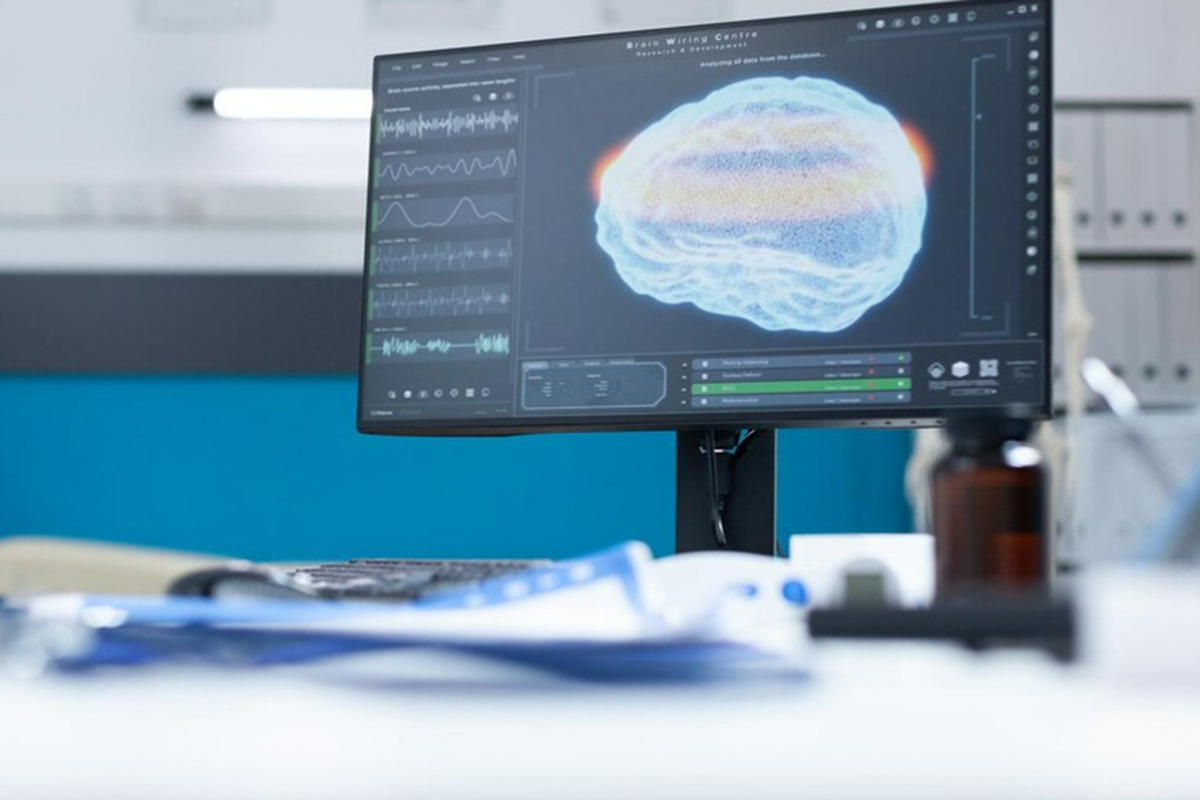“No wires required”: Musk’s scandalous experiment to implant a chip into the human brain caused heated debate
[ad_1]

American entrepreneur Elon Musk’s company Neuralink on Sunday performed an operation to implant a chip in a person’s brain. Already on Monday, Musk shared some details, saying that the patient was “recovering well.” However, whether the device works is not yet clear.
Back in November 2023, Bloomberg reported that Elon Musk was preparing for the most significant project of his career. The businessman’s company Neuralink Corp. was looking for a volunteer for the first clinical trial. In fact, the agency pointed out, the company announced a search for a volunteer who would agree to open part of the skull, and the robot could insert electrodes and ultra-thin wires into the human brain.
When the robot is finished, the missing part of the skull will be replaced by a computer the size of a quarter, which should remain there for years. Its job will be to read and analyze a person’s brain activity, and then transmit this information wirelessly to a nearby laptop or tablet.
At the time, Neuralink showed a video that showed two monkeys moving computer cursors using their brains.
The ideal candidate for such an experiment was an adult under the age of 40 who was paralyzed. For such a patient, the Neuralink implant is intended to be implanted in the area of the premotor cortex of the brain, which controls the hands, wrists and forearms. The goal was to show that the device could safely collect useful data from that part of a patient’s brain, a key step in Neuralink’s efforts to translate a person’s thoughts into a series of commands that a computer can understand.
For scientists, this was not exactly a novelty. Several companies and research groups have already created implants that can help patients perform basic tasks with their minds (like clicking on objects on a screen). But Neuralink, in recognizable Musk fashion, made more ambitious promises.
The company claimed that clinics would soon appear everywhere where anyone could undergo 15-minute robotic surgery and leave with a chip in their head.
“This is going to sound weird, but we will eventually achieve symbiosis with artificial intelligence,” Musk said at the company’s first demonstration in 2019.
Few people know, but two lesser-known companies – Synchron and Onward – have been preparing human trials of brain implants for more than a year. But it was Neuralink that attracted much more attention to this process. This caused some anger among public groups.
Some neuroscientists have said that Neuralink is simply advertising this technology. Animal rights groups have accused the company of cruelty to monkeys, pigs and other mammals on which it has already tested the implants. But most importantly, everyone feared that Musk was an ideal candidate for mass production of mind control devices.
Despite global skepticism, the experiment was carried out. Billionaire Elon Musk announced Monday that the company’s first product is called “Telepathy” and will allow a person to control a phone or computer “just by thinking.”
“The initial users will be those who have lost the use of their limbs,” Musk wrote on his X page.
Neither Musk nor his company have provided further information about who received the implant or whether it works. Neuralink received permission to carry out this type of operation on humans back in May last year from the Food and Drug Administration.
The company’s website currently says its “first clinical trial is enrolling” people who have limited or no use of both arms due to cervical spinal cord injury or amyotrophic lateral sclerosis.
“This research involves placing a small, cosmetically invisible implant in the part of the brain that plans movement. The device is designed to interpret a person’s neural activity so they can control a computer or smartphone simply by intending to move—no wires or physical movements required,” the company’s website states.
At Neuralink’s late 2022 presentation, Musk said the company’s devices would eventually allow blind people to see or give someone with a spinal cord injury “full-body functionality.” His statements at the time drew skepticism from experts who argued that science had not yet advanced that far.
[ad_2]
Source link








